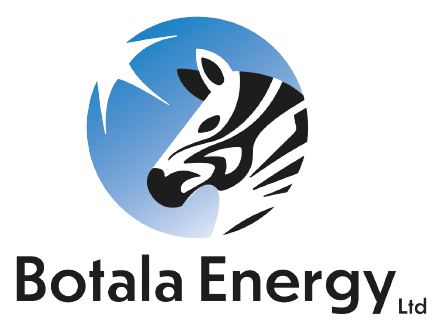This website uses cookies so that we can provide you with the best user experience possible. Cookie information is stored in your browser and performs functions such as recognising you when you return to our website and helping our team to understand which sections of the website you find most interesting and useful.
Sustainability
Sustainability
Botala is committed to providing reliable energy.
Sufficient clean, reliable energy is essential for a prosperous and sustainable future in Botswana. In recognition of the need for clean energy, Botala has signed a strategic binding MoU with Solar Finland to jointly investigate solar power projects and the establishment of solar panel manufacturing at the proposed Leupane Energy Hub. Our aim is to create a lasting and positive benefit by producing clean energy for Botswana and developing pathways for reliable and renewable clean energy.
Botala plans to contribute to Botswana’s energy transition to renewables, especially solar, and switching from high-carbon emitting coal to CBM gas. During this transition, we will consider participating in carbon offset projects to further reduce emissions and provide a lasting benefit to Botswana’s people.
We aim to develop and grow Botala Energy with sustainability at the forefront, shaping our business to profitably deliver in a projected low-carbon future; and creating robust environmental, economic, and social values. Working sustainably is embedded at the heart of the Company and our people, supported by sustainability pillars. These pillars direct our operations ensuring we respect human rights and their safety, protect the environment and support a prosperous future.
Botala is committed to:
- Being a sustainable, environmentally, and socially responsible producer of energy.
- Targeting all 17 Sustainable Development Goals (SDGs) of the United Nations through our base business and additional community investment and support.
- Optimising benefits for Botswana through our economic, environmental, and social impacts.
- Assisting, facilitating, and encouraging the establishment of compatible, energy related and dependent industries in the Serowe – Palapye region.
- Complying with corporate governance recommendations of the Australian Securities Exchange and the Botswana Code of Corporate Governance.
- Developing, implementing, regularly updating, and enforcing technically, environmentally, socially and culturally sound and responsible policies.
- Zero tolerance of bribery and corruption.
- A whistle-blower policy that is publicly available and easily accessible for all employees and other persons engaged by Botala.
- Conducting business with integrity.
Primary sustainability benefits of our projects:
The main impacts of Botala’s proposed operations are summarised below:
Energy Transition and Independency
- Facilitate transition from coal to renewables and contribute to decarbonisation.
- Reduced dependence on unreliable, high carbon-emitting, high-cost imported electricity; and supply affordable energy to impoverished areas. Our aim is to contribute to making energy affordable and available to all.
Climate Change
Reduced carbon emissions by switching from coal to CBM and achieving further reductions by developing solar hybrids.
Employment
Provide direct and indirect employment and support and stimulate local businesses.
Education
Provide education, training opportunities and skill improvements.
Economy
- Establishment of the Leupane Energy and Industrial Park, complete with a reliable supply of affordable electricity.
- Facilitate establishment of planned new-age industries using new technology.
- Planned investment by other high-energy dependent industries seeking reliable, clean energy.
- Reduced spending on imported high-cost electricity and diesel.
- Growth in local communities, stimulated by Botala’s activities, including the use of local goods and service providers.
People and Environment
In addition to the above benefits, planned achievement of all 17 SDGs should impact the following areas:
- Environment – reduced habitat destruction, improvements of wildlife habitats and conservation and restoration efforts.
- Wealth – reduction of poverty by providing employment.
- Education – access to education and training opportunities for all.
- Health – improved health through use of cleaner energy instead of firewood. Highlighting health and hygiene awareness in safety and occupational health induction and follow-up courses.
More information can be found in the following Sustainability pages:

